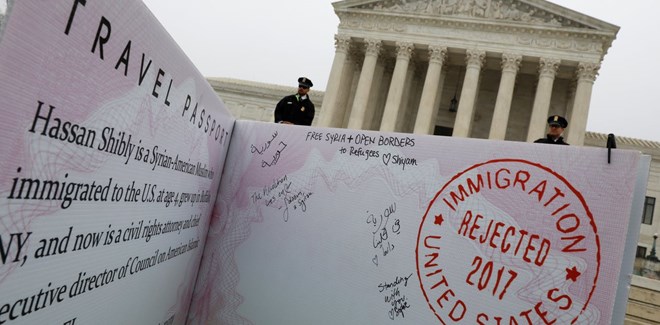
Wednesday July 11, 2018
By Raquel Aldana

A mock-up of banned Muslim travellers’ passport placed outside the U.S. Supreme Court in April. REUTERS/Yuri Gripas
On June 16, the U.S. Supreme Court lifted the 9th Circuit’s nationwide injunction against the third version of President Donald Trump’s travel ban. This ruling marks Trump’s first court victory since he issued the original travel ban back in January 2017.
Thousands now face indefinite separation from family members from the
affected countries. Thousands more will be denied safe harbor from
persecution.
Trump asserts the travel ban is necessary to protect national
security. This claim is contested by many, including 26 retired generals
and admirals, who filed an amicus brief urging the U.S. Supreme Court to invalidate the travel ban.
As a researcher who studies the effect of U.S. immigration laws and policies on human rights, I consider it important to explain the significant numeric scale of the ban’s impact on refugees and U.S. families.
Refugees and family members are not the only categories of foreign
nationals from the enumerated countries in the travel ban who will be
denied entry. Students, tourists, business travelers and workers will
also be turned back. But refugees and family members raise the most
compelling human rights and humanitarian reasons for people to care.